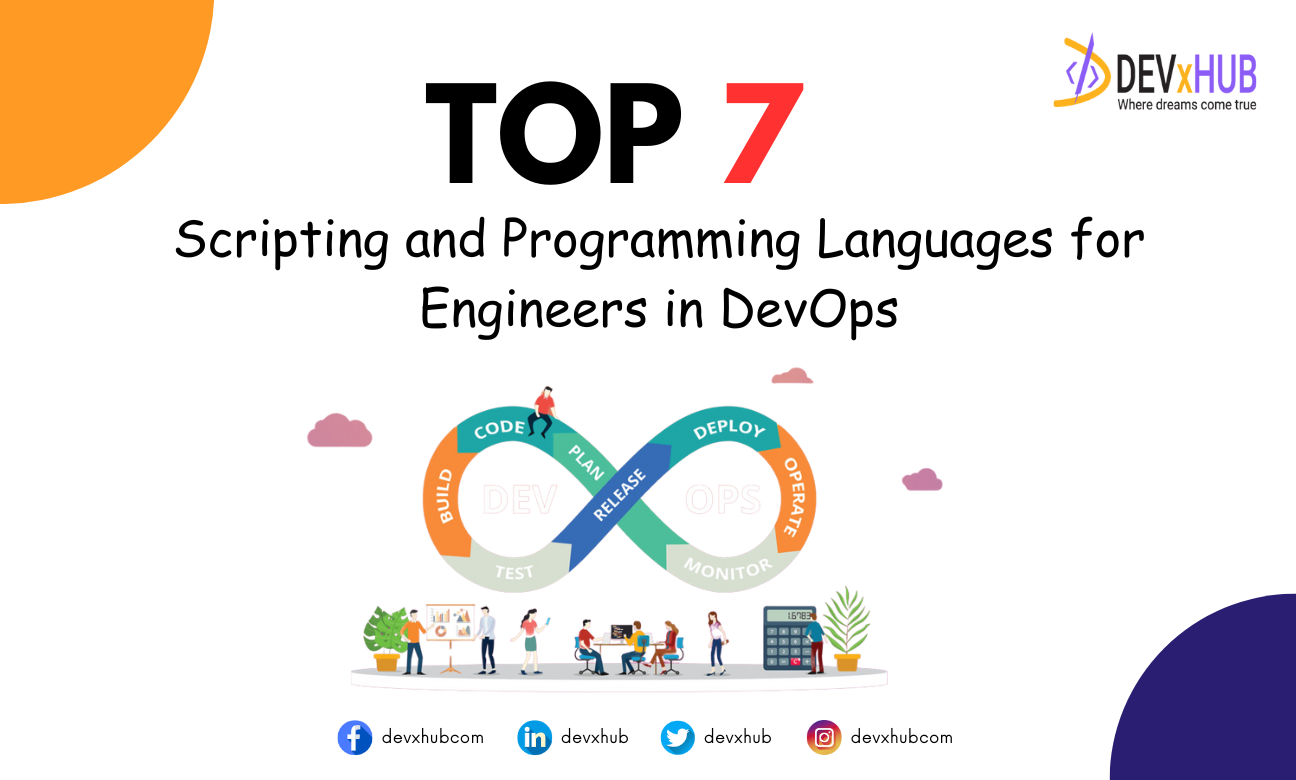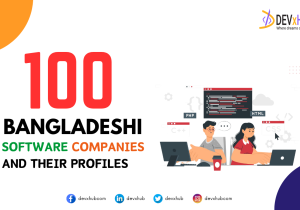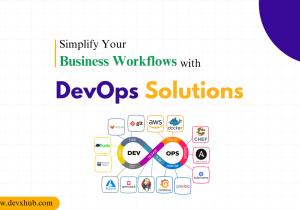Blog - Top 7 Scripting and Programming Languages for Engineers in DevOps
DevOps fosters collaboration, communication, and continual enhancement. Consequently, DevOps engineers must acquire proficiency in specific programming and scripting languages to expedite enhanced software releases and achieve more frequent delivery.
The realm of DevOps is captivating as it necessitates engineers to strategize ways to optimize various facets of the software development process.
This necessity underscores the importance for a proficient DevOps engineer to be well-versed in multiple programming or scripting languages. Moreover, a broader repertoire of coding languages enhances one’s ability to streamline operations and construct software efficiently.
This article illuminates some of the primary programming and scripting languages that aspiring DevOps engineers should master to enter the field or progress in their careers.
What Is DevOps?
DevOps encompasses a series of methodologies and technologies that merge development and IT operations. Initially coined within the realm of software development, its influence has extended to various other fields and is now part of higher education curriculum.
Bringing together two distinct skill sets—developers and IT experts—DevOps aims to enhance software quality, accelerate delivery, and ensure reliability. DevOps engineers prioritize the adoption of agile automated tools and procedures to boost efficiency and agility. This approach not only optimizes customer support but also enhances feature development, deployment, testing, and monitoring processes.
Python
Python stands out as one of the foremost scripting languages crucial for DevOps engineers. Its adaptability to diverse environments and use cases renders it exceptionally appealing to DevOps teams.
Being highly versatile, Python seamlessly operates across multiple platforms such as Windows, macOS, and Linux. Moreover, Python distinguishes itself by being applicable to a broad spectrum of applications, ranging from web development to native apps and even machine learning.
Python’s elegance lies in its clean syntax, dynamic typing, and open-source accessibility, making it an appealing choice for both novices and seasoned programmers alike. Although Python may not always offer the fastest performance, its extensive support and robust libraries compensate for any speed limitations.
- Performance: Python delivers moderate performance suitable for most tasks, although it might not be the optimal choice for computationally intensive operations.
- Scalability: It exhibits moderate scalability and functions well for medium-sized projects but may encounter hurdles with very large-scale applications.
- Platform Compatibility: Python boasts cross-platform compatibility, ensuring wide applicability across Windows, macOS, and Linux.
- Ease of Learning: Renowned for its readability and simplicity, Python is considered easy to learn, catering to beginners.
- Community: With a vast and dynamic community, Python offers abundant resources and libraries for diverse applications.
Java
Java stands as a crucial high-level programming language that DevOps engineers should prioritize learning. Renowned for its versatility, Java finds applications across diverse platforms, making it a go-to choice for software development.
DevOps teams favor Java for web application development due to its seamless integration capabilities with existing codebases. This attribute enables swift adoption of new technologies without necessitating extensive rewrites of application components.
Java’s support for object-oriented programming, garbage collection system, multi-threading capabilities, and facilitation of distributed applications render it well-suited for server-side applications. Moreover, it is a prevalent choice among developers in embedded systems, enabling connectivity with electronics through standard protocols like I2C and SPI.
- Performance: Java boasts high performance, particularly evident in runtime execution, rendering it apt for demanding enterprise applications.
- Scalability: Designed with scalability in mind, Java excels in handling large-scale and enterprise-level projects.
- Platform Compatibility: Following the “write once, run anywhere” principle, Java offers cross-platform compatibility, enhancing its versatility.
- Ease of Learning: While mastering Java’s object-oriented paradigm may pose moderate challenges, its robust capabilities justify the learning curve.
- Community: With a vast and active community, particularly within enterprise and development circles, Java ensures strong support and access to abundant resources.
JavaScript
JavaScript serves as a vital tool in the toolkit of DevOps engineers, enabling the creation of interactive and dynamic visual effects for client-side applications. Its versatility extends to websites, desktop apps, and mobile apps alike.
Furthermore, JavaScript proves adept at crafting web forms and validating user input, enhancing its utility in web development. Beyond its role as a programming language, JavaScript also functions as a runtime environment, executing web applications scripted in other languages.
While its multi-paradigm nature may initially appear daunting to beginners, gaining proficiency in other languages like Python and Java can serve as a solid foundation before delving into JavaScript.
- Performance: JavaScript delivers moderate performance, particularly within browsers, making it well-suited for interactive web applications.
- Scalability: With high scalability, JavaScript excels in web environments, particularly for client-side scripting tasks.
- Platform Compatibility: JavaScript is indispensable for browsers and extends its reach to server-side operations through platforms like Node.js, ensuring widespread adoption.
- Ease of Learning: While it may require some practice, JavaScript is essential for web development and offers moderate learning difficulty.
- Community: JavaScript enjoys a vast and active web development community, offering extensive resources and a plethora of frameworks to aid developers.
Golang
Golang, also known as Go, stands out as a statically typed, compiled language operating within the Google Go programming platform. It ranks among the swiftest programming languages at the disposal of DevOps engineers for crafting web applications, command-line tools, and desktop applications.
Developed by Google, Golang emerges as a low-overhead, high-performance alternative to languages such as Java or Python. Its compiled nature ensures Golang applications boast rapid startup times and typically demand fewer resources compared to interpreted languages like JavaScript.
This language excels particularly in large-scale software projects and big data analytics, thanks to its ability to leverage runtime optimizations such as constant folding and dead code elimination.
- Performance: Golang offers high performance, characterized by swift compilation and execution times, rendering it well-suited for web applications and command-line tools.
- Scalability: Designed with concurrency in mind, Golang scales adeptly, making it an excellent choice for expansive projects.
- Platform Compatibility: Golang exhibits cross-platform compatibility, efficiency, and lightweightness, making it adaptable to diverse environments.
- Ease of Learning: Golang presents a moderate learning curve, distinguished by its simplicity and emphasis on performance-oriented features.
- Community: The Golang community is rapidly expanding, offering a plethora of resources to support developers in their endeavors.
PHP
PHP stands out as one of the leading open-source scripting languages extensively utilized in web development. Its versatility empowers developers to construct a diverse array of web applications, spanning from personal blogs to enterprise-grade websites.
This language proves adept at crafting both static and dynamic websites, while also facilitating seamless integration of payment processors, social media platforms, and widgets.
Often employed either independently or in conjunction with other scripting languages like JavaScript and SQL, PHP enables the development of comprehensive and feature-rich websites when combined with these complementary tools.
- Performance: PHP delivers moderate performance, primarily tailored for web development tasks and dynamic web content creation.
- Scalability: While suitable for web applications, PHP may necessitate meticulous planning for large-scale projects to ensure scalability.
- Platform Compatibility: PHP boasts cross-platform compatibility and enjoys widespread adoption across various systems in web development.
- Ease of Learning: PHP is renowned for its ease of learning, particularly catering to beginners, and is commonly utilized for server-side scripting tasks.
- Community: Backed by a large and well-established community deeply ingrained in web development, PHP offers extensive support and a rich array of libraries.
PERL
A DevOps engineer can leverage PERL across a spectrum of tasks including web development, data analysis, networking, system administration, and even machine learning. Renowned for its flexibility, reliability, and cross-platform compatibility, PERL emerges as one of the premier scripting languages in the DevOps domain.
One of PERL’s standout features is its utility as a software framework, wherein collections of modules seamlessly integrate to create intricate applications. These frameworks, though primarily rooted in PERL, offer the flexibility to incorporate different tools or languages, facilitating the construction of complex systems from diverse components.
- Performance: PERL delivers moderate performance, excelling particularly in text processing and general-purpose scripting endeavors.
- Scalability: While inherently flexible and versatile, PERL may not be the primary choice for exceedingly large-scale projects.
- Platform Compatibility: Highly cross-platform, PERL operates seamlessly across virtually all systems.
- Ease of Learning: Mastery of PERL may pose moderate challenges due to its diverse language features, offering versatility but potentially complexity.
- Community: Supported by a moderate-sized yet vibrant community, particularly active within system administration and scripting spheres.
Ruby
Ruby stands as a premier choice among scripting languages for streamlining repetitive tasks within IT environments. This dynamic, interpreted programming language serves as a potent DevOps tool, catering to the needs of web development, data science, and unit testing.
The burgeoning popularity of Ruby in the IT landscape can be attributed to its gentle learning curve, rendering it accessible even to novices lacking substantial programming experience.
DevOps practitioners harness Ruby’s capabilities to craft both simple and sophisticated applications. From basic CMS platforms to complex messaging systems and e-commerce websites, Ruby proves its versatility. Moreover, it remains a pertinent choice for constructing web services and developing APIs.
- Performance: Ruby delivers moderate performance and finds widespread usage in scripting and automation undertakings within IT environments.
- Scalability: While Ruby exhibits versatility across applications, scalability considerations necessitate prudent evaluation.
- Platform Compatibility: With its cross-platform nature, Ruby is extensively employed in web-based applications.
- Ease of Learning: Ruby’s minimalist and easily understandable code structure facilitates swift learning, particularly for newcomers.
- Community: Ruby boasts a moderate-sized community, notably influential in the realms of automation and scripting.
Concluding Thoughts:
Navigating the decision of which programming language to learn for aspiring DevOps engineers can often feel like navigating a maze. However, finding the perfect fit involves careful consideration of various factors. Firstly, contemplate the nature of projects you envision working on in your DevOps journey. Are you drawn to web development, data science, or perhaps unit testing? Understanding your project preferences can significantly narrow down your language options and guide you towards the most suitable choice.
Furthermore, take into account the complexity of the language itself. Are there alternative languages closely related to your primary choice that offer a gentler learning curve? Sometimes, opting for a language with similar syntax or concepts can expedite the learning process and enhance your proficiency in the chosen field.
By weighing these considerations thoughtfully, you can pave the way for a more informed decision, ultimately aligning your language selection with your career aspirations. Remember, the right programming language can serve as a powerful tool in your DevOps toolkit, empowering you to tackle diverse challenges with confidence and efficiency.
Related Posts
Categories
- App Development (2)
- Design (2)
- DEVxHUB (30)
- Digital Marketing (2)
- Guide (24)
- It Bangladesh (1)
- Logo design (1)
- Operating system (1)
- Personal Improvement (14)
- Planning (4)
- Project management (3)
- Social media (2)
- Software Development (5)
- Software Quality Assurance (8)
- Startups (1)
- Team work (1)
- UI UX (1)
- Web Development (6)
Main Tags
- 2024
- Android
- app development
- bangladesh
- content writing
- design
- devxhub
- Digital marketing
- Guide
- IOS
- It
- logo design
- Operating system
- Personal Improvement
- planning
- project management
- social media
- Software Development
- Software Quality Assurance
- software testing
- software testing types
- Startups
- Success
- team
- UI UX
- UI UX design
- VR
- Web Development















